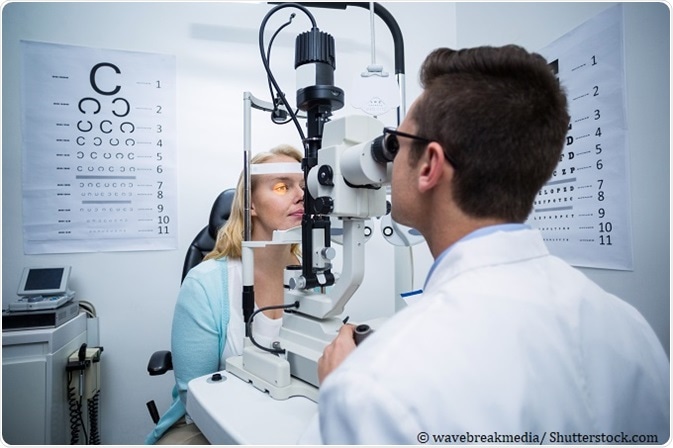Top-Rated Eye Center of Northwest Florida: Top Quality Eye Care Services
Top-Rated Eye Center of Northwest Florida: Top Quality Eye Care Services
Blog Article
A Comprehensive Guide to Eye Surgical Treatment Treatments Available at Your Optometrist's Method
In the realm of ophthalmology, the developments in eye surgical procedure treatments have opened a world of opportunities for those seeking improved vision and eye health and wellness. From the extensively well-known LASIK eye surgery to the less acquainted Corneal Transplants, the range of treatments offered at your ophthalmologist's method can resolve a variety of vision-related problems. Comprehending the subtleties of each therapy option and how they can potentially transform your vision needs a more detailed take a look at the outcomes and intricacies related to these treatments. Let's check out the diverse landscape of eye surgical procedure therapies that could potentially boost your aesthetic acuity and lifestyle.
LASIK Eye Surgical Procedure
When taking into consideration vision adjustment procedures, LASIK eye surgical procedure becomes a noticeable choice for people seeking long-lasting improvement in their sight. LASIK, which stands for Laser-Assisted sitting Keratomileusis, is a prominent refractive surgical treatment that aims to correct usual vision troubles such as farsightedness, astigmatism, and nearsightedness. This procedure involves making use of a laser to reshape the cornea, permitting light to be appropriately concentrated onto the retina, resulting in clearer vision without the demand for glasses or contact lenses.
One of the crucial advantages of LASIK eye surgery is its reasonably pain-free and fast nature. The treatment itself typically takes only about 15 mins per eye, with a lot of patients experiencing enhanced vision practically promptly. Furthermore, the recovery time for LASIK is reasonably brief, with numerous individuals able to return to their normal activities within a day or 2.

PRK (Photorefractive Keratectomy)
FIRST SENTENCE:
An additional advanced vision modification treatment comparable to LASIK is PRK (Photorefractive Keratectomy), offering effective solutions for individuals seeking options to typical glasses or contact lenses. PRK is a surgery that improves the cornea making use of an excimer laser to deal with refractive errors such as nearsightedness (nearsightedness), hyperopia (farsightedness), and astigmatism. Unlike LASIK, PRK does not entail developing a flap on the cornea; rather, the outer layer of the cornea is gently gotten rid of prior to the laser therapy. This makes PRK an appropriate option for people with slim corneas or those involved in activities where the threat of eye injury is greater.
The recovery duration for PRK is longer contrasted to LASIK, as the external layer of the cornea needs time to restore. Individuals may experience discomfort and blurry vision throughout the preliminary recovery phase, yet vision gradually improves over numerous weeks. Your eye medical professional will certainly supply thorough post-operative treatment guidelines to guarantee a smooth recovery process and ideal visual end results.
Cataract Surgical Treatment
Cataract surgical treatment, a typical treatment done by ophthalmologists, involves eliminating the over cast lens within the eye and replacing it with a clear artificial lens dental implant to restore vision clarity. Cataracts take place when the all-natural lens of the eye ends up being over cast, leading to obscured vision and trouble seeing plainly. During cataract surgery, the eye doctor makes a little laceration in the eye and makes use of ultrasound technology to separate the over cast lens, which is then delicately sucked out. Once the cataract is removed, the artificial lens, called an intraocular lens (IOL), is put to replace the all-natural lens's function. This IOL assists to focus light onto the retina, improving vision. Cataract surgery is normally carried out on an outpatient basis and is understood for its high success price in boosting vision and lifestyle for individuals. It is vital to seek advice from your optometrist to determine if cataract surgical treatment is the right option for you based on your specific eye health requirements.
Corneal Transplants
Corneal transplants, also referred to as corneal grafts, are operations that include changing damaged or infected corneal cells with healthy and balanced donor cells to enhance vision and minimize corneal conditions. This procedure is generally advised for dig this individuals with corneal scarring, thinning, or various other corneal conditions that can not be dealt with properly with various other methods such as drug or contact lenses.
Throughout a corneal transplant, the eye doctor eliminates the central part of the harmed cornea and replaces it with a donor cornea. This donor tissue is thoroughly picked, evaluated, and saved to make certain compatibility and minimize the risk of rejection. Corneal transplants can restore vision, reduce pain or discomfort, and improve the look of the eye.
There are various sorts of corneal transplants, consisting of full-thickness transplants (penetrating keratoplasty) and partial-thickness transplants (such as endothelial keratoplasty or former lamellar keratoplasty), with the choice relying on the specific problem being dealt with. After the surgery, patients call for close post-operative care to keep track of healing and avoid issues.
Retinal Detachment Surgery
Adhering to effective corneal transplants, another critical eye surgical treatment treatment that may be needed for specific individuals is retinal detachment surgical procedure, a fragile procedure intended at restoring the retina's correct placement to preserve vision and stop further difficulties (eye center of northwest florida). Retinal detachment takes place when the retina, the thin layer of tissue at the back of best site the eye accountable for capturing light and sending out visual signals to the mind, retreats from its normal position. This separation can cause vision loss if not quickly dealt with through surgical procedure
During retinal detachment surgical treatment, the ophthalmologist functions to reattach the retina to the back of the eye. The goal of the surgical treatment is to protect against vision loss and recover or boost vision if feasible.
Conclusion

In the world of ophthalmology, the innovations in eye surgical procedure therapies have opened up a world of opportunities for those looking for improved vision and eye wellness. From the extensively well-known LASIK eye surgical treatment to the much less acquainted Corneal Transplants, the array of procedures available at your eye doctor's technique can resolve a range of vision-related concerns. It is essential to seek advice from with your eye physician to identify if cataract surgical treatment is the right option for you based on your specific eye health requirements.
Complying with successful corneal transplants, an additional vital eye surgical treatment treatment that might be needed for particular people is retinal detachment surgical treatment, a delicate procedure aimed at bring back the retina's correct placement to preserve find more information vision and avoid more problems.In final thought, there are numerous eye surgery therapies readily available at your eye medical professional's technique, consisting of LASIK, PRK, cataract surgical treatment, corneal transplants, and retinal detachment surgical treatment.
Report this page